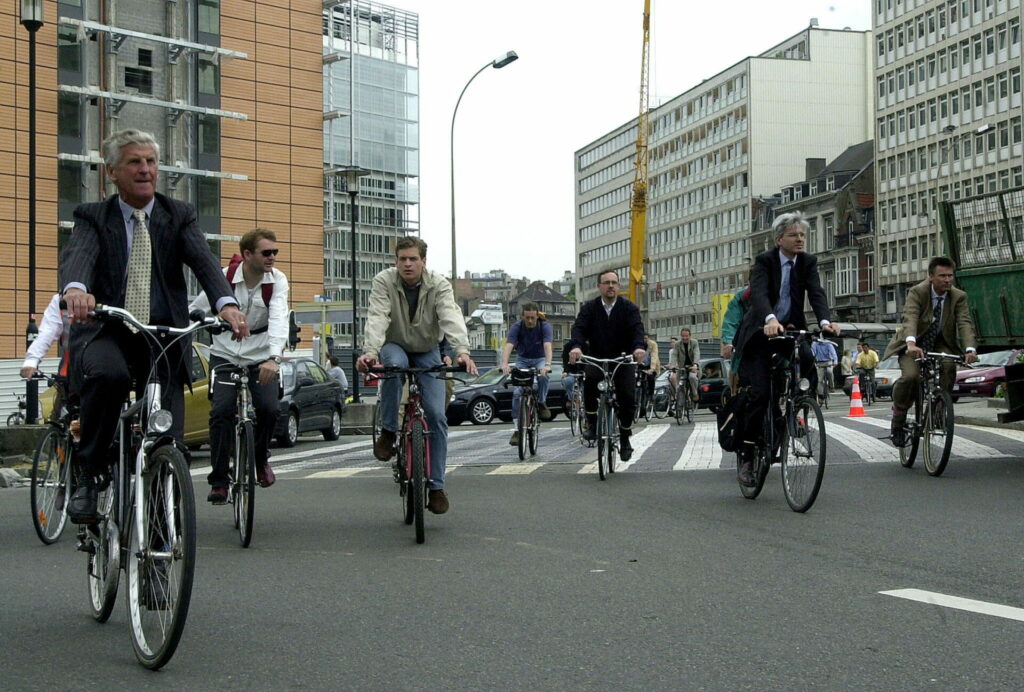The number of Belgians who commute to work by bicycle has increased dramatically over the past few years, a recent study by Belgium's FPS Mobility has found.
According to the report, which examined the commuting habits of more than 1.6 million Belgians working at large companies (i.e. those with more than 100 employees), 14.1% of Belgians cycled regularly to work in 2021 — a 26.3% increase compared to 2017, and a whopping 80% increase relative to 2005.
These figures, however, conceal enormous differences between Belgium's different regions. In particular, the proportion of Brussels residents who cycle to work is only half the national average (7.2%), despite this figure having increased 65% relative to 2017 (from 4.4%). Meanwhile, the proportion of Flemish people who bike to work is more than eight times greater than the proportion of Walloons (20% vs 2.4%).
Regional differences
According to the study, Wallonia's poor bicycle commuting figures are mainly down to infrastructure and geography: "These disparities can be explained in part by the landscape: Belgium is flatter in the north than in the south; and also by the cycling infrastructure, which is better in Flanders and Brussels," the report noted.
In an interview with Le Soir, Federal Minister for Mobility (Ecolo) Georges Gilkinet elaborated that such differences do not mean that the Federal Government can't "do better" to improve the popularity of cycling in the south of Belgium.
"Even if the region is more hilly, more rural and therefore less suitable for cycling, we should be able to do better in terms of cycling facilities," Gilkinet explained. "Wallonia has fallen behind enormously, and my colleagues are trying to make up for this."
Does cycling more mean driving less?
As well as highlighting the growing popularity of cycling, the report found (perhaps predictably) that the proportion of Belgians who drive to work has fallen. But this decline was actually very slight: 64.6% of Belgians regularly commuted to work by car in 2021, a drop of only 2.2 percentage points since 2005.
Once again, the study noted vast discrepancies between Belgium's different regions: Brussels saw the steepest decline in car use (from 45.1% in 2005 compared to 36.6% in 2021). Meanwhile, Flanders registered only a slight decrease (from 68.7% to 66.7%).
Again, the story in Wallonia was very different to the other regions: the proportion of its residents who drive to work is well above the national average (85%) and remarkably has increased since 2005 (80.4%).
Related News
- Belgian cycling tourism continues to grow in popularity
- Hidden Belgium: Cycle in the trees
- How Brussels is learning to love bikes
"In many corners of Wallonia, it remains almost impossible to do without a car, or even several cars," explained Le Soir columnist Pascal Martin, adding: "The Covid-19 crisis has also led Walloons to turn away from public transport."
Importantly, this study was carried out before the Good Move plan was (controversially) introduced last year. This aims to reduce traffic in many central Brussels neighbourhoods. "The next study will tell whether the new Brussels traffic pattern and its obstacles have succeeded in dissuading motorists from frequenting the capital and boosting the use of bicycles," Martin concluded.

